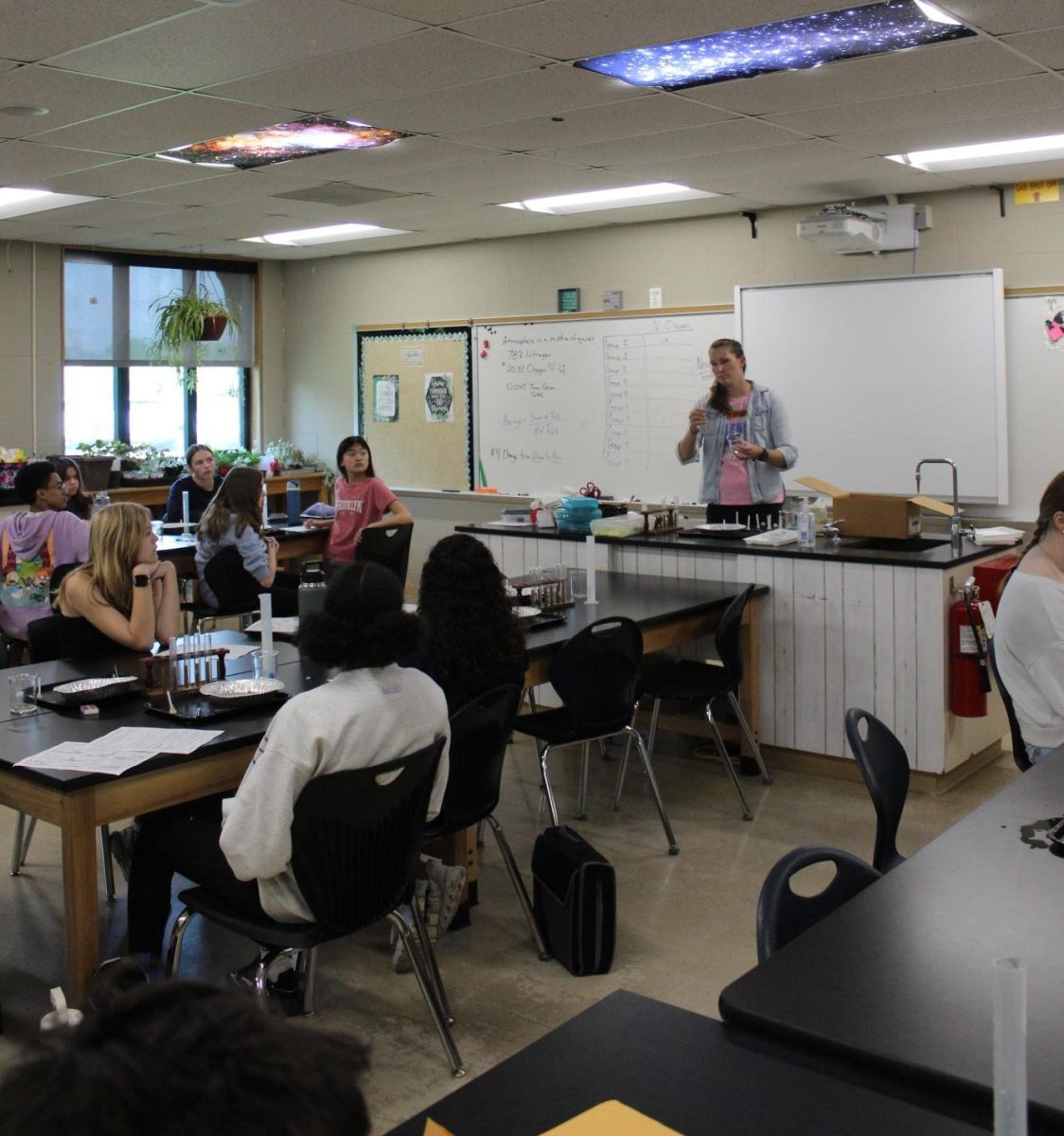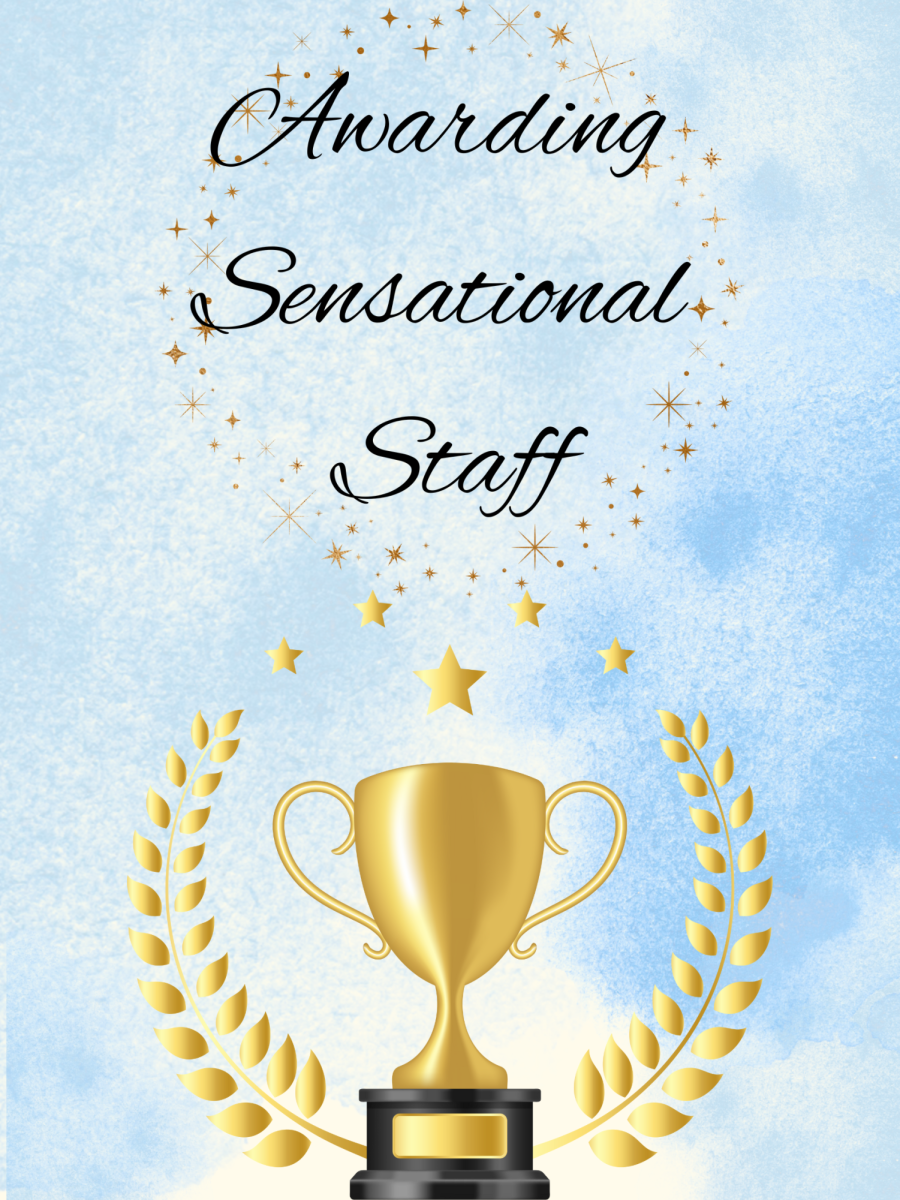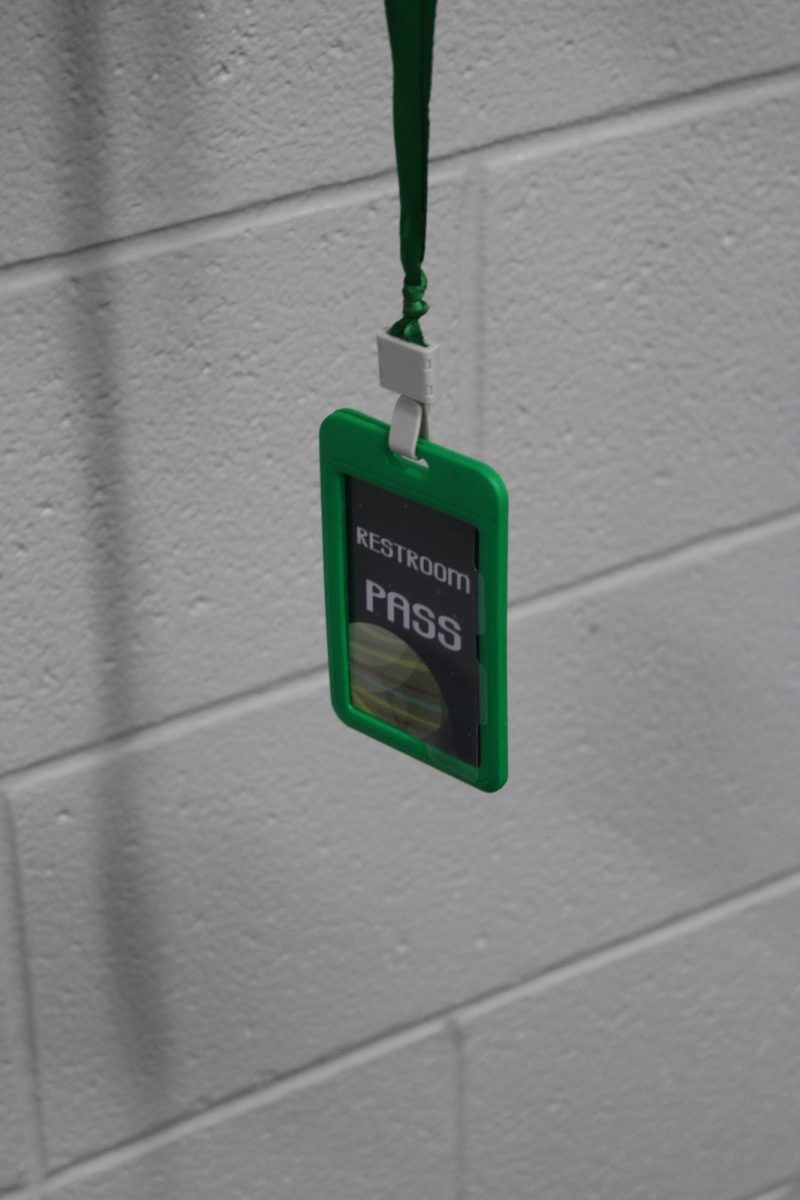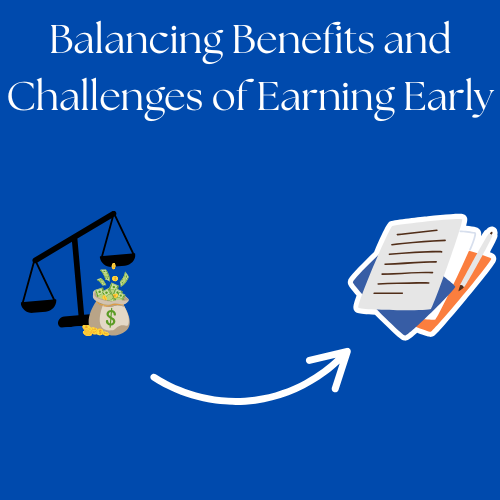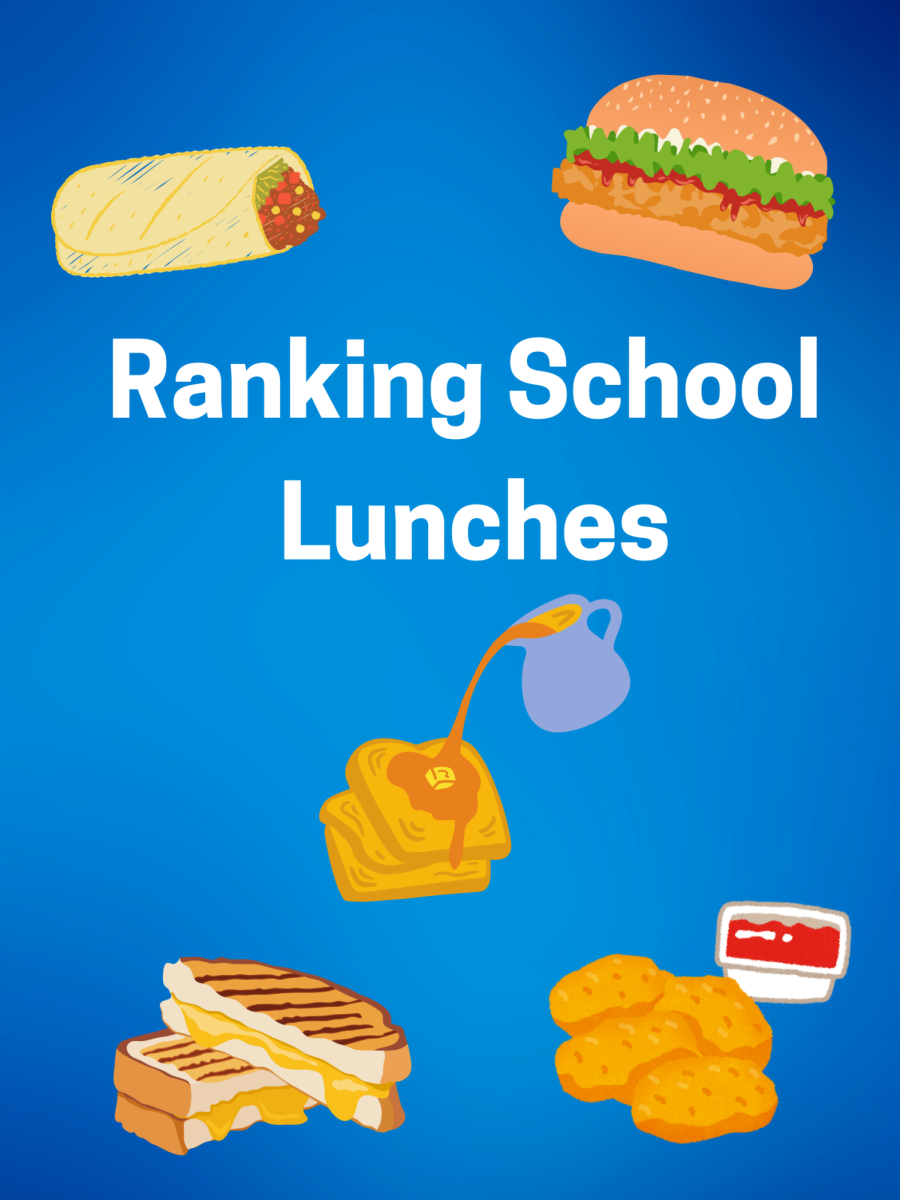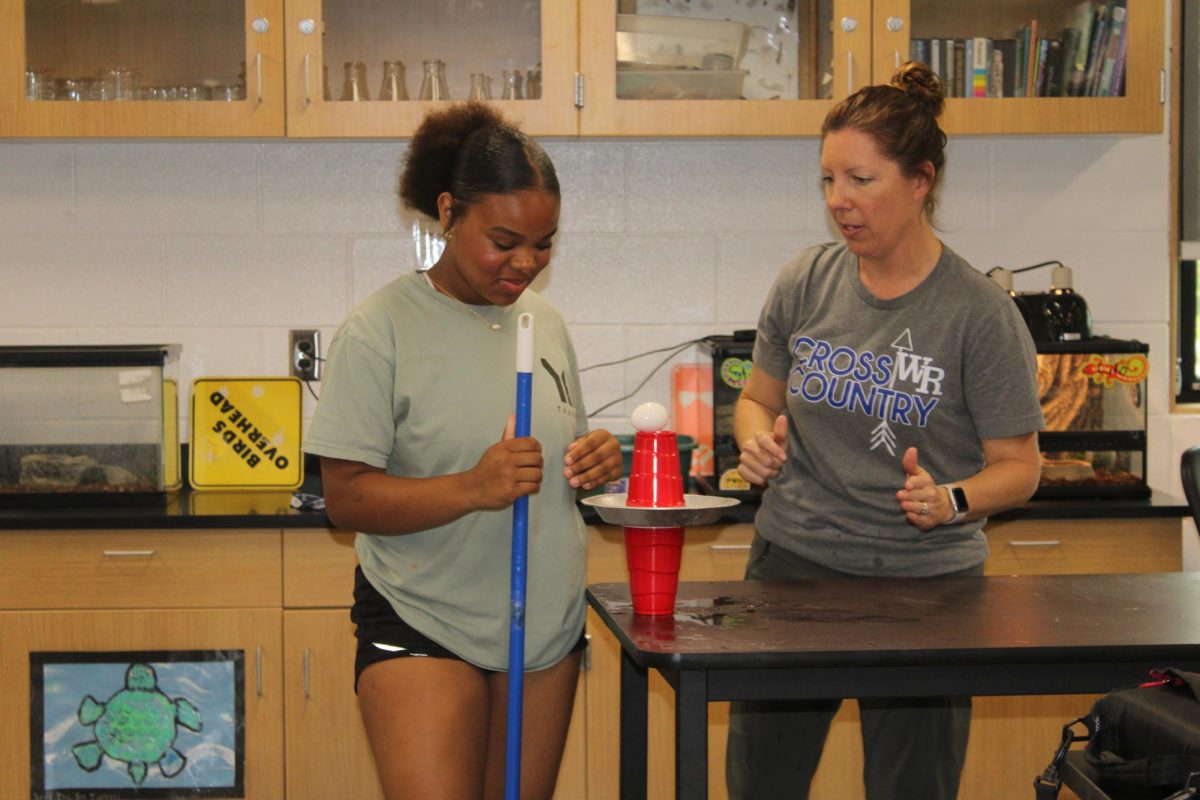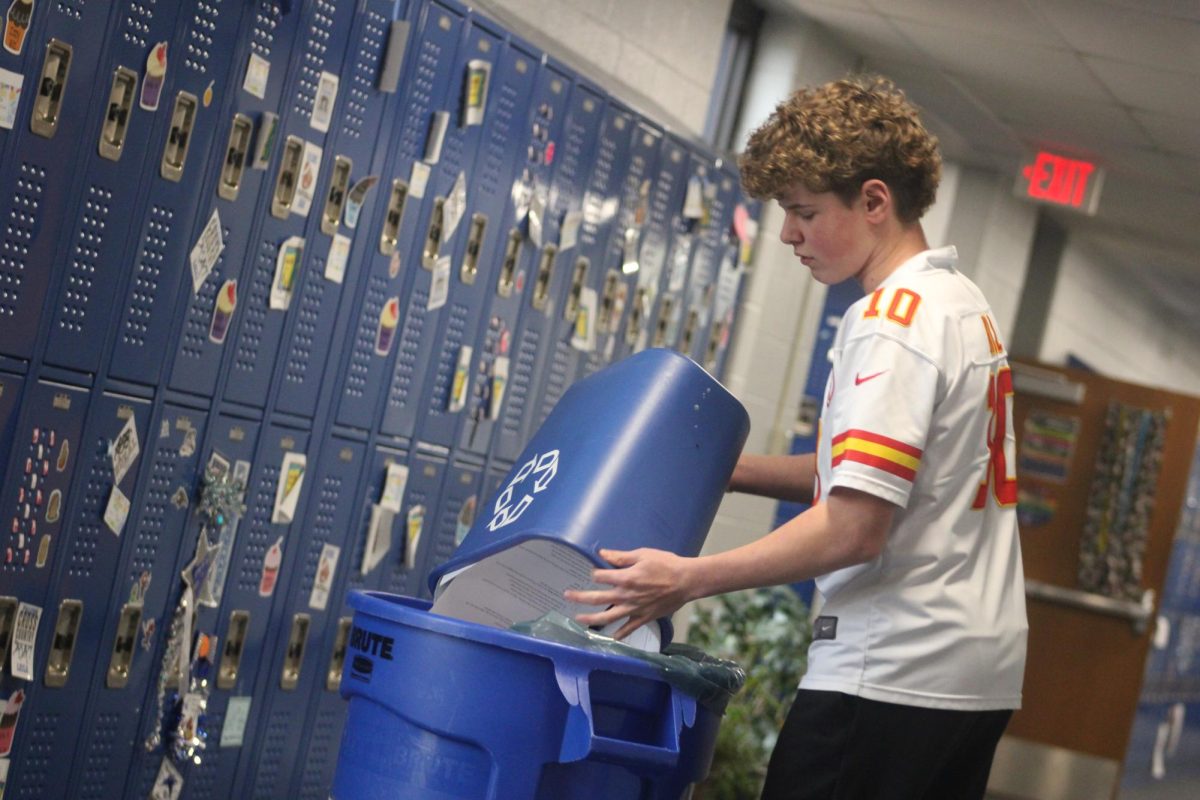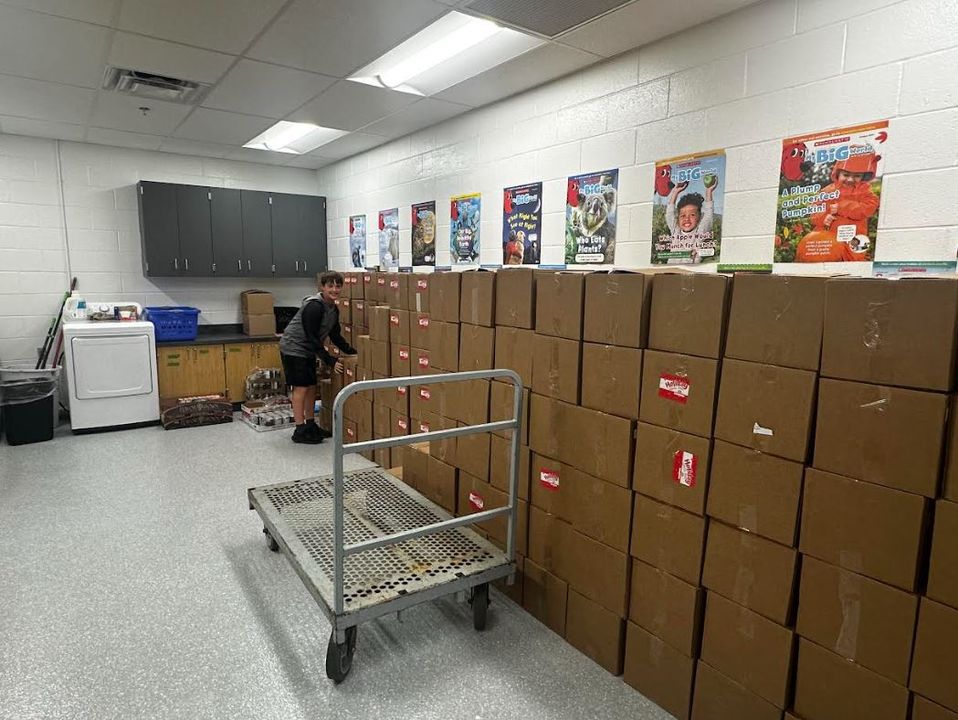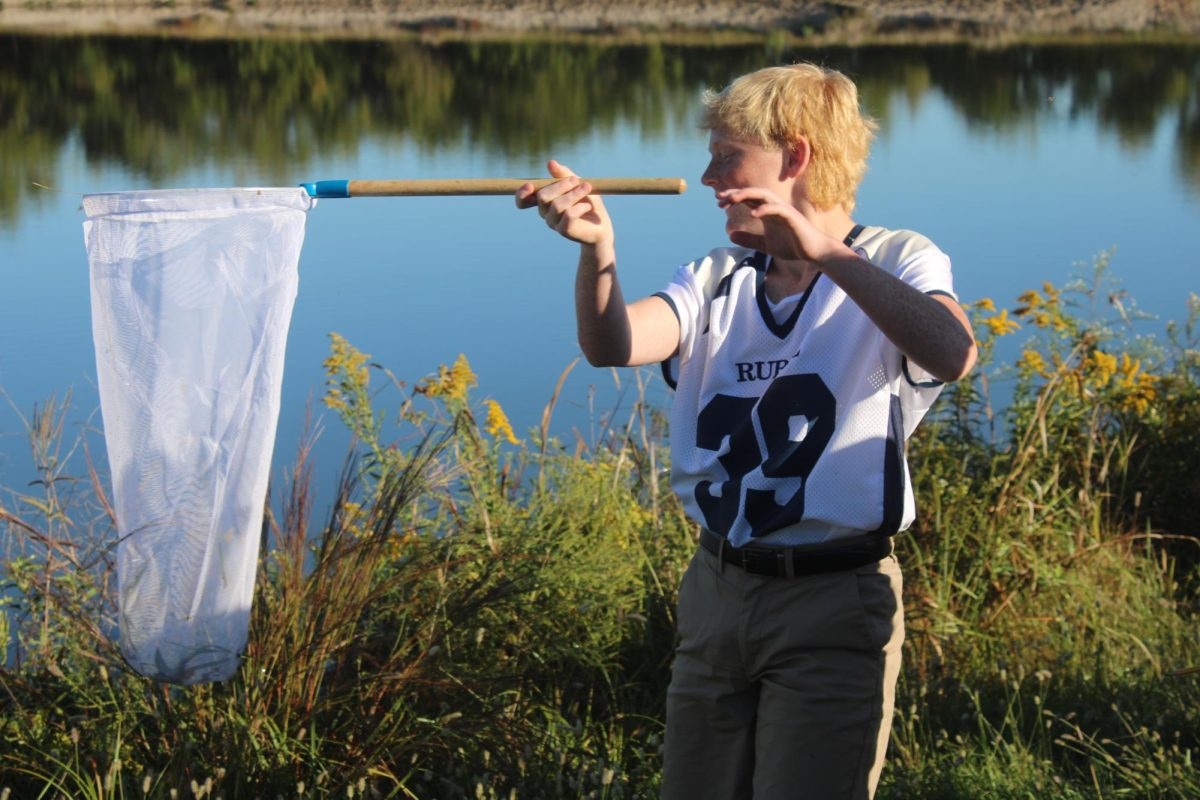Within the past 2 years, AI has become increasingly part of the online world. Like all new internet resources, AI has raised many questions. One of which is whether AI should be used in the classroom. The answer to this question is, “Absolutely.”
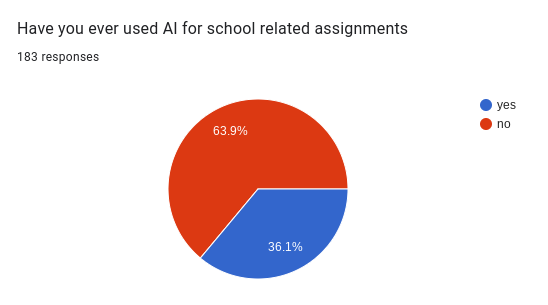 AI is a competent tool, there is no doubt about it. Many years ago educators discussed the advantages and disadvantages of using calculators in the classroom. New technology will always find its way into the school and there is no stopping it. We can only learn to adapt. According to Dr. Scott McWilliams, Superintendent of the USD 437 school district, “As new technologies surface, educators seek to understand, explore pros and cons with use, and then make the best possible decisions to help students learn and grow in responsible and educationally-sound ways.”
AI is a competent tool, there is no doubt about it. Many years ago educators discussed the advantages and disadvantages of using calculators in the classroom. New technology will always find its way into the school and there is no stopping it. We can only learn to adapt. According to Dr. Scott McWilliams, Superintendent of the USD 437 school district, “As new technologies surface, educators seek to understand, explore pros and cons with use, and then make the best possible decisions to help students learn and grow in responsible and educationally-sound ways.”
AI can be a very valuable asset in the classroom. It can help students brainstorm ideas, revise papers, and get feedback. Teachers should teach students about AI rather than ignoring it. 7th-grade teacher, Mrs. McDonald says, “I do think AI can be a useful tool if used correctly and appropriately. AI is a part of our reality as educators, and it will not disappear. I feel I am better off working WITH kiddos to understand it than to fight against it.”
A lot of people at WRMS use AI. A large portion of students use it and some teachers use it too. AI is not only a benefit for the students, it’s a benefit for the teachers as well. 7th grade teacher, Mrs. Jones agrees saying, “It is very helpful when I am trying to come up with example sentences and am having trouble being creative.”
One problem that often arises with AI use in the classroom is ethicality. Students may use AI to plagiarize, misrepresent their abilities, or improperly reference checks. However, page 16 of the WRMS student handbook details ethical and unethical uses of AI so students know exactly what they can and can’t use AI for.
AI is a great tool that can help students brainstorm, revise, and get feedback. It will not go away, so why ignore it when we can embrace the positives and use it as a valuable, ethical resource?

